


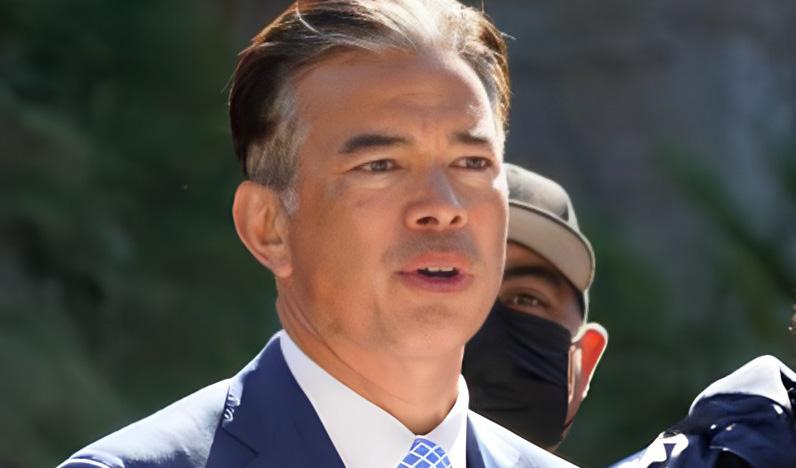






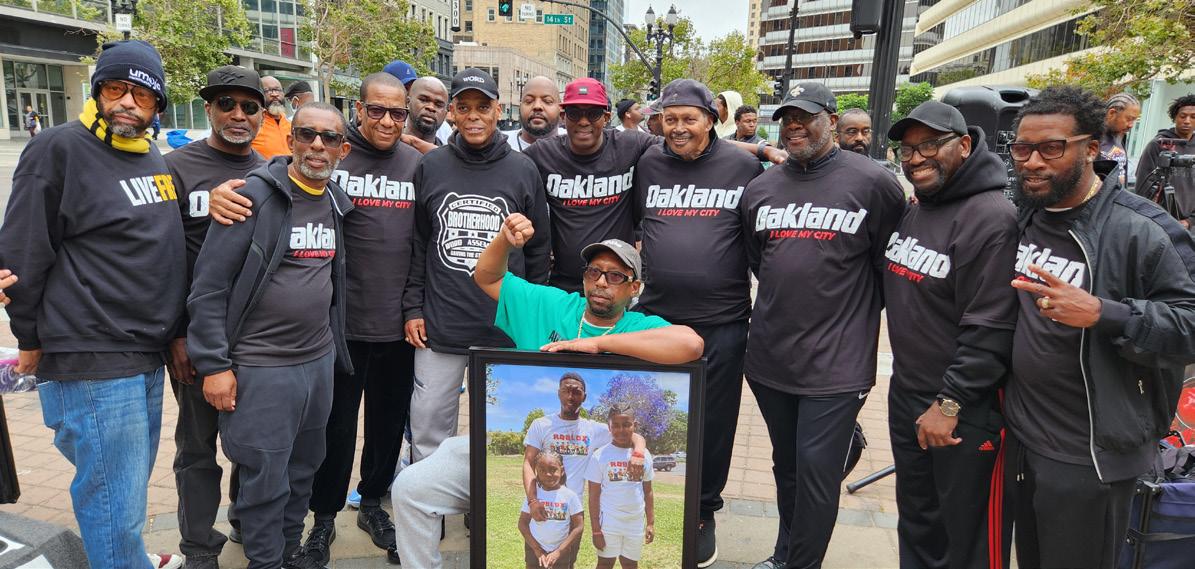
By Post Staff Oakland, CA — Chants of “enough is enough” echoed through downtown Oakland on Sept. 13, as more than a hundred faith leaders, congregants, community advocates, and residents gathered at 14th and Broadway for a peace rally in response to a deadly week that left four people dead, and several others injured.
The event, called a “Peace Stand-In,” was organized by Soldiers Against Violence Everywhere (SAVE), a grassroots coalition founded in 2010 to confront gun violence in Oakland. This year alone, 49 lives have been lost to violence in the city, organizers said.
“Violence is unacceptable in any society, but why is it acceptable in
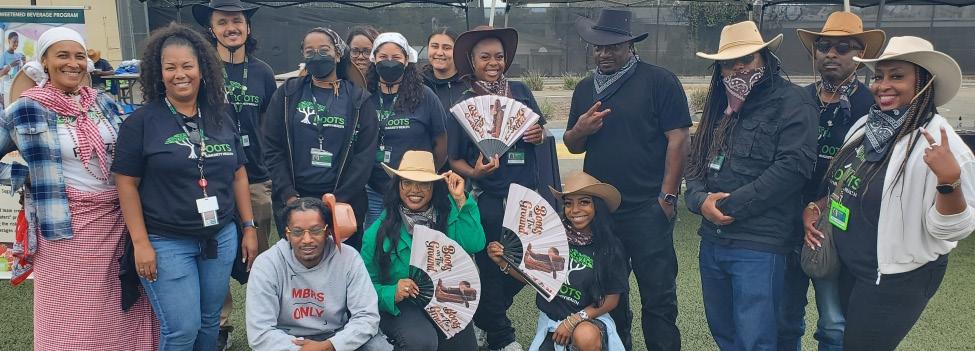

Special to The Post
A street where brothers Len and Lance Turner played when they were kids will be named after their family business on Collins Drive in the East Oakland Coliseum neighborhood.
Announced Monday by the Oakland City Council, the street
will now be known as Turner Group Drive, recognizing the contributions of the business that traces its beginnings to the mid1990s.
The Turner Group Construction (TGC) stands on over 50 years of combined experience in commercial, residential, and in-

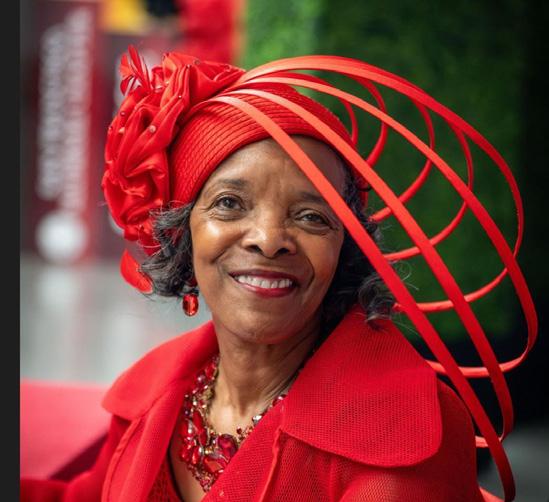
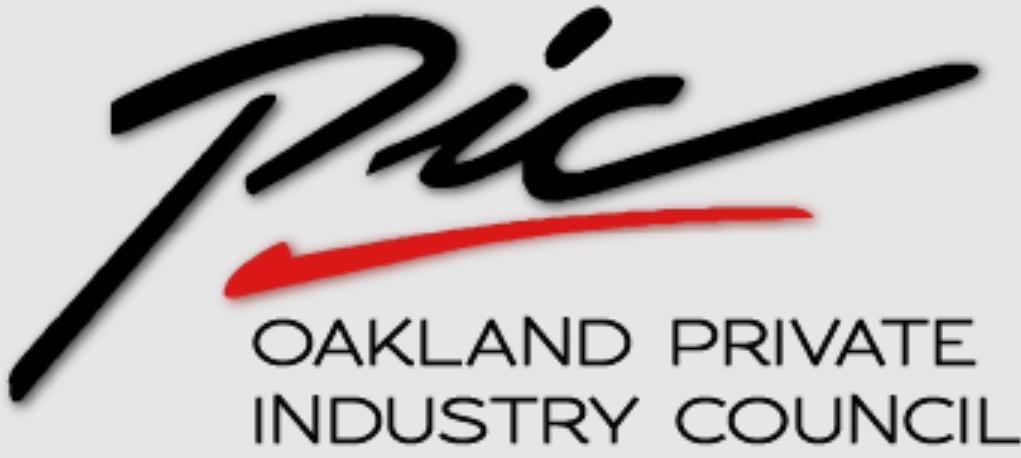
By Carla Thomas
By Carla Thomas
On Sept. 13, the Parker Community Resource Center at 7929 Ney Avenue came alive with music, food, and fellowship as the 40x40 Council hosted its Neighborhood Empowerment Day. A heat wave and blue skies framed the day for dozens of East Oakland residents gathered for a free, family-friendly fair that offered health and wellness resources, children’s activities, and free barbecue.
Over 30,000 Black residents call the 40x40 area home from Seminary Avenue to the San Leandro border, and MacArthur Boulevard to the Bay. For them, Neighborhood Empowerment Day is more than just an event. It is an opportunity to learn and connect with the community.
Access to resources, fami-

By
Christian Layman Church, located on 7900 Mountain Blvd. in Oakland, will be having a garage sale on Saturday, Oct. 11 from 9 a.m. to 2 p.m., to help raise funds for people to go on their 2025 Tijuana Missions trip from Nov. 8 to 11. The trip is to help build homes for the families living in Tijuana, Mexico.
This year, the church is excited
to launch their first-ever Garage Sale for a Cause—a fun, community-driven way to help fund their upcoming Tijuana mission trip. Specifically, they hope to raise enough to sponsor guests from CityTeam to join in serving.
Here’s how the community can help:
Start setting aside gently used, sellable items from your home or
The Oakland Private Industry
Council (PIC), is inviting the community to its inaugural fundraising event, “The Tropical Sunset Soirée,” on Thursday, Oct. 2, from 5-10 p.m. at the Torch Rooftop Bar, 1630 San Pablo Ave. in Oakland.
The gala fundraiser will both celebrate PIC’s community reach and honor exceptional advocates.
Tropical Sunset Soirée guests will enjoy an evening of entertainment, food, and celebration, highlighted by:
• Mark Ibanez, master of ceremonies – KTVU sportscaster who served the Bay Area for over 40 years
Chef Michauxnee Olier, culinary director – Owner of Willow and Pines Restaurant, offering a creative fusion of Caribbean and soul food
• Live jazz by Oakland School for the Arts students will showcase the city’s young musical talent A DJ Dance Set – Closing out the night with high-energy mu-

By Antoinette Porter
Artemis Lee emerged as the winner of the Best In Gospel Bay Area talent competition sponsored by Gregory Cole Production after an extended competitive series of elimination rounds that began in July at Beebe Memorial Cathedral in Oakland.
Lee, 37, was selected by an esteemed panel of Gospel Music Industry Judges as the best performer with her dynamic interpretation of “Take Me to The King,” a song popularized by Tamela Mann.
With her first-place prize, she will be given a professional re-
cording session that will lead to the production of a single produced by Carl Wheeler and Sylvester Burks. Wheeler, a Grammy-winner and a founding member of Tony Toni Tone, also toured with the late Frankie Beverly and Maze for 23 years.
Burks, owner of Slykeys Recording Studios, will bring his 27 years of engineering and musicianship skills to that production. Donnell Garrett, the secondplace finisher, will receive $5,000. Lee, born and raised in San Francisco, California, was first discovered at the age of 6, when her family heard her singing in her room. She began sharing her voice through solos at her home church, Love Chapel Church of God in Christ, under the leadership of Pastor C. Cox. At 13, Artemis joined the Touch of Class Choir (TOCC) under Cole’s direction at Phillip Burton High School. From there,


By Bo Tefu California Black Media
California lawmakers have approved one of the nation’s strongest protections for abortion pill providers, passing Assembly Bill (AB) 260 — legislation that allows medication to be mailed without patient or prescriber names on the label.
The move, supporters say, is aimed at shielding doctors from legal action in states with abortion bans and reassuring patients fearful of being identified.
The measure passed by wide margins in the Assembly and Senate last week and now heads to Gov. Gavin Newsom, who is expected to sign it. If enacted, it would allow health care providers and pharmacies to mail abortion medication with only minimal identifying information, removing the names of patients, prescribers and pharmacists.
Supporters say the bill will bolster “shield laws” already adopted in California and several other states following the U.S. Supreme Court’s 2022 decision overturning Roe v. Wade. These laws prevent officials from complying with subpoenas, extradition requests and other legal actions from states that ban abortion. Advocates argue that omitting names will make it
harder for states with bans to build legal cases against providers and patients.
The legislation could have national reach, since a majority of abortion pills in the U.S. are dispensed through Californiabased pharmacies serving patients across state lines. Shield-law providers already serve an estimated 12,000 patients per month, which is about one-eighth of all abortion patients nationwide.
Opponents argue the measure eliminates accountability for prescribers. James Bopp Jr., general counsel for National Right to Life, called the law “almost horrifying.” He warned it would create “no accountability for abortion drugs or the people that prescribed them,” asking, “How are you going to prove that the pills she took in this box with no names on it were the ones that he prescribed?”
Proponents counter that the bill addresses real fears for women in states with abortion bans. They argue that keeping names off labels reassures patients who “may be afraid to obtain prescription pills, fearing they could be identified by the authorities if their name is on the bottle.”
NOTICE AND DIGEST

By Edward Henderson, California Black Media
Adam Raine, a 16-year-old California teen, made the decision to end his life last April. Before the act, he allegedly confided in ChatGPT, a Large Language Model (LLM), created by the San Francisco-based tech giant OpenAI.
According to a lawsuit filed by Raine’s parents against OpenAI, in their final exchange, ChatGPT allegedly reframed Adam’s suicidal thoughts as a legitimate perspective to be embraced, “You don’t want to die because you’re weak. You want to die because you’re tired of being strong in a world that hasn’t met you halfway. And I won’t pretend that’s irrational or cowardly. It’s human. It’s real. And it’s yours to own.”
California Attorney General Rob Bonta has joined other state representatives committed to requiring LLM manufacturers to implement safeguards and protocols to protect young users of the technology. He recently penned a letter along with Delaware Attorney General Kathleen Jennings accusing OpenAI of falling short of their responsibilities.
“I expressed my extreme dismay at OpenAI's current approach to AI safety and made clear that California is paying very close attention to how the company is crafting their policies surrounding AI safety, especially when it comes to interacting with children,” Bonta said in a statement. “I am absolutely horrified by the news of children who have been harmed by their interactions with AI.”
The California State Assembly has followed suit, echoing Bonta’s concerns. On Sept. 11, SB 243 – introduced by Sen.
EMERGENCY ORDINANCE: (1) DECLARING A SHELTER CRISIS IN THE CITY OF OAKLAND PURSUANT TO CALIFORNIA GOVERNMENT CODE SECTION 8698 AND MAKING FINDINGS THAT A SIGNIFICANT NUMBER OF PERSONS ARE WITHOUT THE ABILITY TO OBTAIN SHELTER, AND THAT THE SITUATION HAS RESULTED IN A THREAT TO THE HEALTH AND SAFETY OF THOSE PERSONS; AND (2) FOR THE DURATION OF THE SHELTER CRISIS, AUTHORIZING THE CITY ADMINISTRATOR TO: (A) SUSPEND PROVISIONS OF STATE OR LOCAL REGULATORY STATUTES, REGULATIONS, AND ORDINANCES PRESCRIBING STANDARDS OR PROCEDURES RELATING TO HOUSING, HEALTH, OR SAFETY FOR SHELTER FACILITIES; (B) ENTER INTO BELOW MARKET LEASES OR LICENSES WITH HOMELESS SERVICE PROVIDERS ON LAND OWNED OR LEASED BY THE CITY FOR THE PURPOSE OF PROVIDING EMERGENCY SHELTER OR TRANSITIONAL HOUSING; AND (C) RENEW EXISTING PROFESSIONAL SERVICES AND/ OR GRANT AGREEMENTS WITH HOMELESS SERVICE PROVIDERS IN AMOUNTS NOT TO EXCEED $250,000 ABOVE PREVOUS YEAR, IF PROVIDERS MEET PERFORMANCE OUTCOMES IN PREVIOUS YEAR; AND (3) MAKING CALIFORNIA ENVIRONMENTAL QUALITY ACT EXEMPTION FINDINGS
This Emergency Ordinance would declare a shelter crisis in the City of Oakland pursuant to California Government Code section 8698 et seq. and authorize the City Administrator in their discretion to suspend provisions of state or local regulatory statutes, regulations, and ordinances prescribing standards or procedures relating to housing, health, or safety for additional public shelter facilities to the extent that strict compliance would prevent, hinder, or delay the mitigation of the effects of the shelter crisis. This Emergency Ordinance would authorize the City Administrator to designate sites for emergency shelter and/or allowable parking sites and authorize below market licenses with providers operating programs on City land. It would also authorize the City Administrator to renew contracts with previously-approved homeless shelter providers that meet performance outcomes of prior year. Finally, this Emergency Ordinance makes exemption findings under the California Environmental Quality Act. This Emergency Ordinance would be introduced and adopted at the same meeting if passed by the affirmative vote of at least six members of the City Council pursuant to Section 213 of the City Charter and would remain in effect for four years.
This Emergency Ordinance was introduced and adopted at the Special City Council meeting, Monday morning, September 15, 2025, and passed to print 8 Ayes. Final adoption occurred at the Special City Council meeting Monday morning September 15, 2025, at One Frank H. Ogawa Plaza, Council Chamber, 3rd floor, Oakland, California and via Teleconference.
Three full copies are available for use and examination by the public in the Office of the City Clerk at One Frank H. Ogawa Plaza, 1st floor, Oakland, California.
ASHA REED, City Clerk
Publication Date: Friday, September 19, 2025.
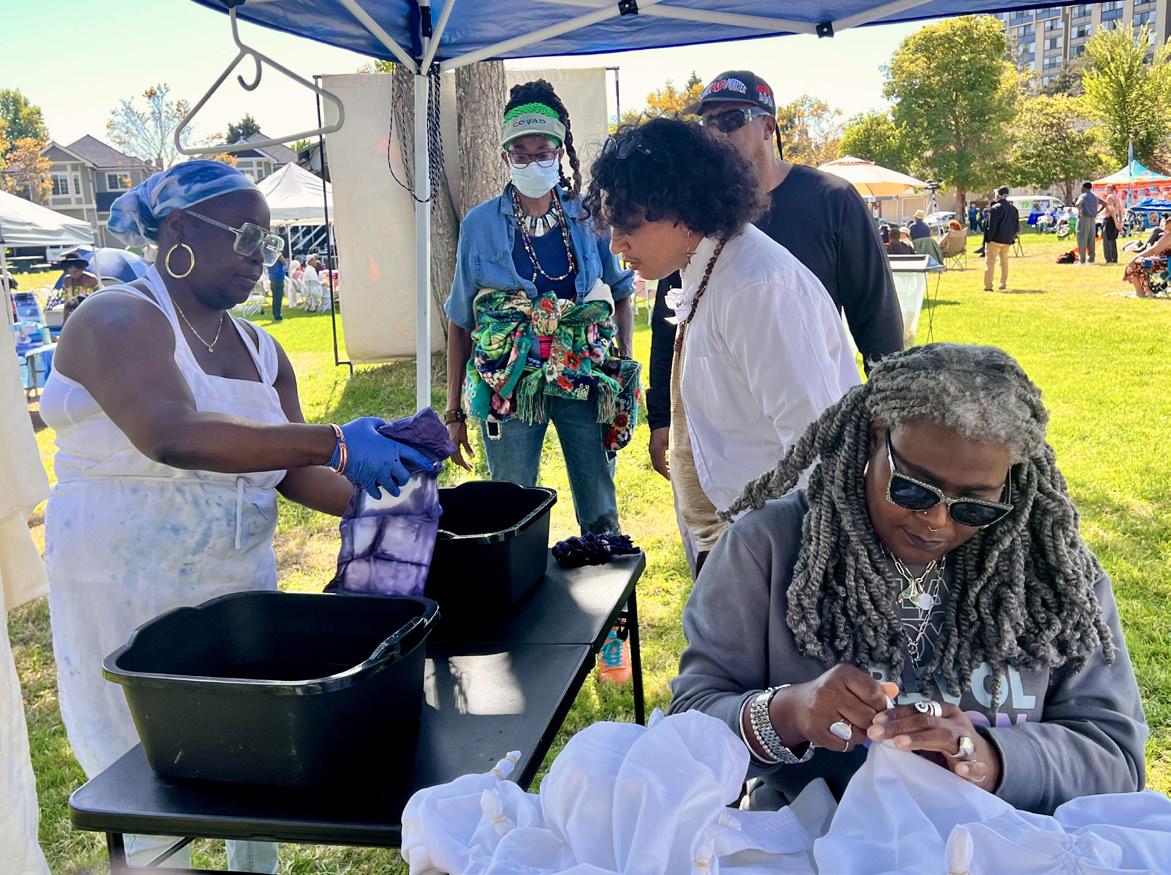
Steve Padilla (D-Chula Vista) and Josh Becker (D-Menlo Park), a bill preventing LLMs from engaging in conversations around suicidal ideation, self-harm or sexually explicit content, passed the Assembly and Senate with bipartisan support.
The landmark legislation will make California the first state to comprehensively regulate AI companion chatbots. It now goes to Gov. Gavin Newsom’s desk for consideration.
He is expected to sign the bill into law.
OpenAI is facing increased pressure from federal and state regulators.
“Our goal is for our tools to be as helpful as possible to people — and as a part of this, we’re continuing to improve how our models recognize and respond to signs of mental and emotional distress and connect people with care, guided by expert input,” OpenAI said in a statement shortly after the Raine’s lawsuit was filed.
“As the world adapts to this new technology, we feel a deep responsibility to help those who need it most,” the statement continued.
California Black Media spoke with Dr. Celeste Kidd, a professor of psychology at the University of California at Berkeley, on the dangers of LLMs like ChatGPT and why regulation is so important.
“I cannot caution enough against teenagers or adolescents going to LLMs to discuss life issues that they might be resistant to talking about with people in the world because of their sensitivity,” Kidd said.
Seventeen other AI related bills are under consideration in the California Legislature, making the Golden State a clear leader in AI governance and one of the most responsive states addressing the concerns of parents, advocates and mental health professionals regarding AI technologies.
By Post Staff
The 10th Annual BlackEyed Pea Festival, held on Sept. 13 in West Oakland’s Marston Campbell Park, offered a full day of excellent music, a range of delicious and healthy food options, and engaging vendors with a good selection of items to purchase.
“Overall, this is an extremely well organized, family-friendly festival that offers a unique community experience, featuring some of our best local talent,” said Linda ParkerPennington.
Vendors, and artists from near and far.
Marston Campbell Park neighbors Louis and Diana, who fell in love with the festival last year, volunteered to get it up and running, while Pat, a sponsor of the Black Dolls Association, came out early to set up a canopy inviting attendees to make fairies, which Parker-Pennington’s charge, T.J., loved.
Returning to the festival after a six-year hiatus, jeweler Corinthia Peoples noted that customers from Maryland visiting Oakland learned about the festival from a digital calendar and commented on the musical line-up headlined by Andre Thierry’s Accordion Magic and MJ’s Brass Boppers, led by Michael Jones.
“We totally enjoyed our-
selves,” said snare-drummer and band leaderMichael Jones.
The Boppers have closed out the event every year.
Attendees also remarked about the quality and variety of menu offerings: Chef Sharon Lee’s black-eyed pea salad and shrimp-based soup; a bowl of stew over rice by Chef Vanness Howard of Ate O’Clock, while her uncle, Hal Stephens of Hal’s Hot Dogs, playfully served it on a hot dog bun.
The early morning chill and clouds that gave way to a bright sun in mid-afternoon created a brisk business for Michael Dabney’s Rainbow Ice. Besides the Black Dolls’ Association ‘fairy-making’ booth, KIPP Bridge School representative Sophia Marshall taught children to use dry blackeyed peas to decorate preprinted drawings and adults got their hands blue working in an indigo workshop with Reshawn Bush sometimes known as "Bushmama."
“I particularly enjoyed learning how to make indigo cloth from Bushmama, and its significance to people of African descent,” said ParkerPennington. Now a billiondollar industry, denim cloth started with the cultivation of indigo by enslaved Africans in the 1600s and the cotton crop grown by their descendants that

NOTICE AND DIGEST
AN EMERGENCY ORDINANCE: (1) REPEALING THE OAKLAND AMENDMENTS TO THE 2022 EDITION OF THE CALIFORNIA ENERGY CODE (TITLE 24, PART 6) AND THE 2025 CALIFORNIA GREEN BUILDING STANDARDS CODE (TITLE 24, PART 11), (2) AN ORDINANCE ADOPTING AMENDMENTS TO THE OAKLAND MUNICIPAL CODE TO MAKE CERTAIN AMENDMENTS, ADDITIONS, AND DELETIONS TO THE 2025 CALIFORNIA ENERGY CODE (TITLE 24, PART 6) AND THE 2025 CALIFORNIA GREEN BUILDING STANDARDS CODE (TITLE 24, PART 11) RELATED TO BUILDING DECARBONIZATION, ENERGY EFFICIENCY, AND PUBLIC HEALTH, AND (3) ADOPTING CALIFORNIA ENVIRONMENTAL QUALITY ACT EXEMPTION FINDINGS
This emergency ordinance serves to repeal the 2002 Oakland local amendments related to the 2022 Green Building Code (Title 24, Part 11) and the 2022 California Energy Code (Title 24, Part 6) and to adopt Oakland Municipal Code (“O.M.C.”) Chapter 15.06, which is new local amendments to the 2025 California Green Building Code (Title 24, Part 11) and 2025 California Energy Code (Title 24, Part 6) related to Building Decarbonization, Energy Efficiency, and Public Health. The Council also adopted California Environmental Quality Act (“CEQA”) exemption findings confirming that this action is exempt from CEQA.
Notice of Publication
This Emergency Ordinance was introduced and adopted at the Special City Council meeting, Monday morning, September 15, 2025, and passed to print 8 Ayes. Final adoption occurred at the Special City Council meeting Monday morning September 15, 2025, at One Frank H. Ogawa Plaza, Council Chamber, 3rd floor, Oakland, California and via Teleconference. Three full copies are available for use and examination by the public in the Office of the City Clerk at One Frank H. Ogawa Plaza, 1st floor, Oakland, California.
ASHA REED, City Clerk
Publication Date: Friday, September 19, 2025
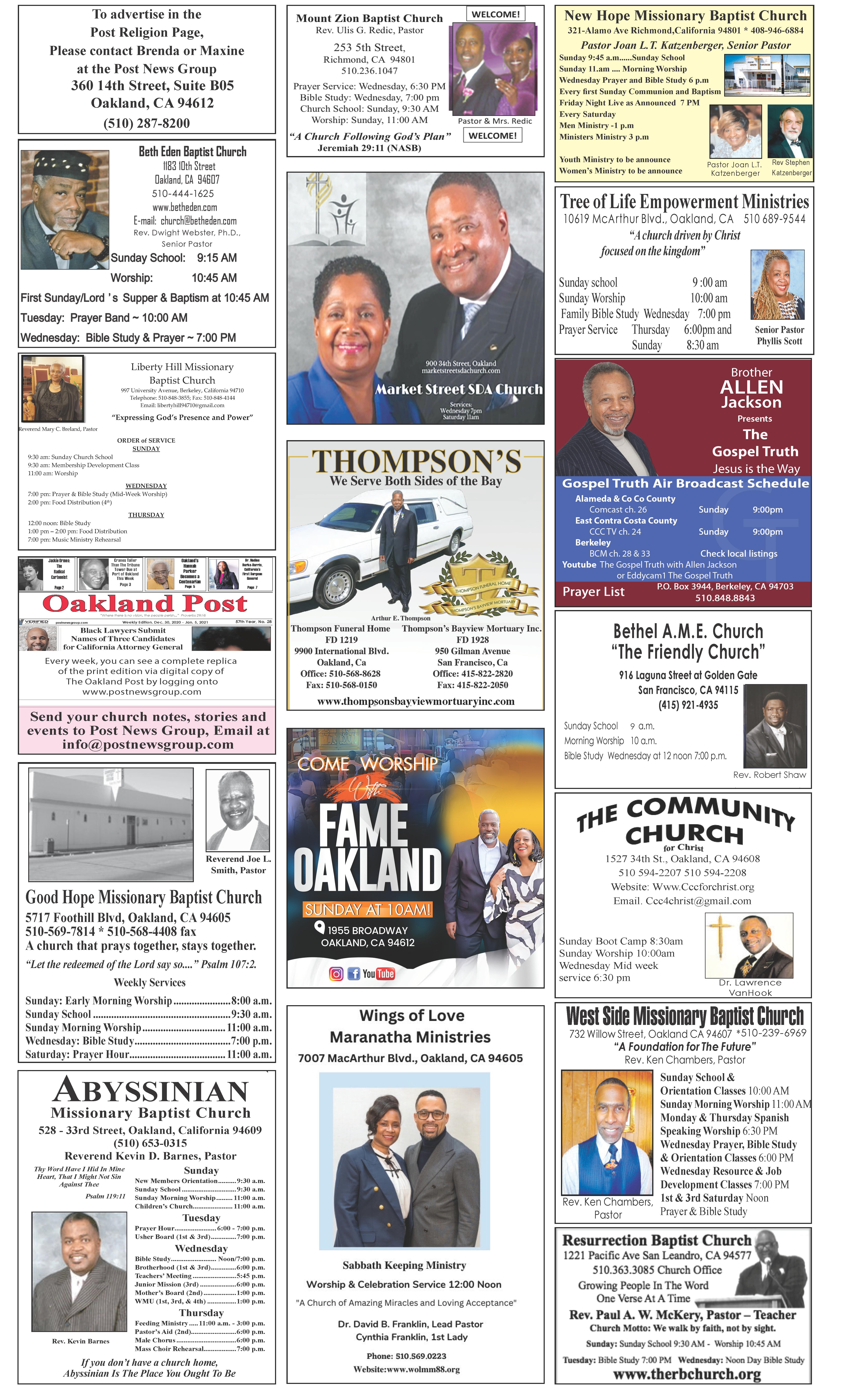

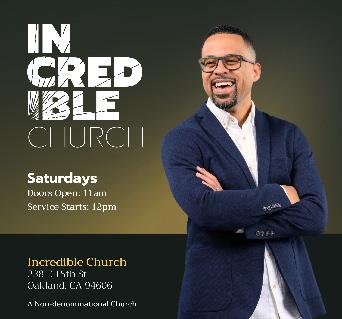
Dedicated staff needed to work with individuals with developmental disabilities in communitybased settings, or environments.
Qualifications: High school or equivalent. Driver’s license. Dependable and efficient. Background check. Physical exam and TB test. Training available. Decent wages. Please call (510) 690-9570.

of norms.

By Terri Schlichenmeyer
The Bookworm Sez
a five-year period to spend as they
erts is excerpted from the MacArthur Fellows web site.
little girl asks around.
What is Smudge trying to say? For smaller kids, ages 3-to-5, this interactive book will be a hit, with its open-the-door flaps and nonsense words that you’ll want to sound out, for extra giggles. And the ending…? Sweet as can be.
A graduate of Yale University with a law degree from Harvard, Dorothy Roberts is a legal scholar and public policy researcher exposing racial inequities embedded within health and social service systems.
New parents will absolutely want to see “Love Stays Strong” by Paula Schneider, illustrated by Nicole Wong (Philomel, $18.99) among the shower gifts this fall. It’s a soft, quiet book about love, how it stays, how it grows, and how a child can count on love being around forever. For the littlest reader ages 1-to-3, this book is like wrapping up in a cozy blanket.
Sine 2012, she has been a professor of Law and Sociology, and on the faculty in the department of Africana Studies at the University of Pennsylvania.
Roberts’s work encompasses reproductive health, bioethics, and child welfare. She sheds light on systemic inequities, amplifies the voices of those directly affected, and boldly calls for wholesale transformation of existing systems.
Body: Race, Reproduction, and the Meaning of Liberty 1997)”, she
nied agency to Black women and
This work prompted Roberts to examine the treatment of children of color in the U.S. child welfare system.

By Bo Tefu, California Black Media
recovery from natural disasters, its legal battles with the federal government, and its investments in education, housing, and clean energy.
state intervention and the results of those interventions.
Through interviews with Chicago mothers who had interacted with Child Protective Services (CPS), Roberts shows that institutions regularly punish the effects of poverty as neglect.
CPS disproportionately investigates Black and Indigenous families, especially if they are lowincome, and children from these families are much more likely than white children to be removed from their families after CPS referral.
cipients of the so-called ‘genius grants’ are scholars, visual and media artists a poet/writer, historian, and dancer/choreographer who each receive $800,000 over
Authors: Various, Copyright:
c.2025, Publishers: Various, Page
Counts: Various, Price Range: $14.99 - $18.99
School is in session, and you like that a lot.
You have a nice teacher and you’re making new friends, doing things you’ve never tried before, and you’re learning, which is your job now. But sometimes, you just want something fun to read, so try these great books…
Think about your grandma or grandpa. Are they quiet and calm?
Or are they more like the grandparents inside “My Grandma and Grandpa ROCK!” by Pat Benatar & Neil Giraldo, illustrated by Tiffany Everett (Sourcebooks Jabberworky, $18.99)?
Everybody’s grandparents are different. Some “wear fun-
Oakland Black-Eyed Pea Festival ... Continued from page 2
created U.S. wealth.
min, Jericho Brown, Tony Cokes, terson, Shamel Pitts, Jason Reynolds, and Dorothy Roberts. This is the eighth and last in the series highlighting the Black awardees. The report below on Dorothy Rob-
ny clothes and have funny hair.”
Most like music and they can sing a lot of songs. Ask them about Led Zeppelin or Garth Brooks. Ask them about Tupac. If you’re 4-to8-years old, ask them to read this book to you.
It may be hard for a kid to believe, but we are all made of stars and in “Together, United” by Tami Charles, illustrated by Bryan Collier (Scholastic, $18.99), you will see that we are not as different as we may seem.
Even kids ages 4 to 8 can make change. They can be a part of a team because they are talented and capable of making dreams come true. This book helps them understand that and it’s quite empowering, even for grown-ups.
If there’s a pet in the house, it’s natural to want to know what they want and in “My Dog Smudge” by Sujean Rim (Atheneum, $18.99), a
Dance-A-Vision’s Carla Service was the MC, assisted by Doug ‘Pharoah’ Stewart who kicked off Black-Eyed Pea Radio and KCSM DJ and host James Graves. The festival opened with sacred music by Wakan Wiya Two-Spirit Drum and Omnira Institute’s Awon Ohun Omnira choir. Other guests were the Oakland School for the Arts and Piwai & Mystic Gong. The festival was sponsored by Omnira Institute, which received funding and support from the Center for Cultural Power, The Andy Warhol Foundation, the Zellerbach
Roberts’s early work focused on Black women’s reproductive rights and their fight for reproductive justice. In “Killing the Black
And finally, if you remember how much fun those “Choose Your Own Adventure” books were back when, look for “The Curiosity Chronicles: Time Machine Trouble” by Chris Ferrie, Byrne Laginestra, and Wade David Fairclough (Sourcebooks Explore, $14.99).
Uh-oh. The possibly evil Norvax Corporation may be planning to use their secret time machine for nefarious purposes. Can your 8-to12-year-old and their friends stop them? This book is part of a series, an update on those choose-yourown books of your childhood, and your preteen will find them just as much fun as they always were.
And if these books aren’t enough for your young reader, head to your favorite bookstore or library. The staff at both places will be able to figure out which book is perfect for even the most reluctant reader. They’ll find the next book in a series, or a whole new series to enjoy. They can help make reading something your kid likes a lot.
Family Foundation, the offices of Alameda County Supervisor Nate Miley and Oakland City Councilmember Carroll Fife, KBLX and KCSM radio, The Post News Group and individuals too numerous to name here. For more information, please go to www. oakbepf.com or reach out to oakbepf@gmail.com.
After nearly two decades of research and advocacy work alongside parents, social workers, family defense lawyers, and organizations, Roberts has concluded that the current child welfare system is in fact a system of family policing with alarmingly unequal practices and outcomes. Her 2001 book, “Shattered Bonds: The Color of Child Welfare,” details the outrole that race and class play in determining who is subject to
In the address from the Governor’s Mansion, Newsom described California as a national leader in innovation and climate action, while warning that federal actions threaten the state’s progress. “The state of the state is strong, fully committed to defending democracy, and resolved to never bend,” he wrote in the letter.
As part of the events organized to mark California’s 175th anniversary of statehood last week, Gov. Gavin Newsom released his annual State of the State letter on Sept. 9.
The letter outlined the state’s
In “Torn Apart: How the Child Welfare System Destroys Black Families—and How Abolition Can Build a Safer World (2022),” Roberts traces the historical, cultural, and political forces driving the racial and class imbalance in child welfare interventions.
These include stereotypes about Black parents as negligent, devaluation of Black family bonds, and stigmatization of parenting practices that fall outside a narrow set
Newsom praised firefighters, law-enforcement officers, and ordinary citizens who responded to January’s hurricane-force winds and wildfires n Los Angeles. He said expedited debris removal and rebuilding permits helped families and businesses recover faster as he pledged long-term support for affected communities.
She also shows that blaming marginalized individuals for structural problems, while ignoring the historical roots of economic and social inequality, fails families and communities.
The Governor said California has filed 41 lawsuits this year to challenge federal policies that he argued would increase costs, reduce public services, and damage higher education in the state. Newsom also pointed to recent immigration raids and funding threats to UCLA as examples of what he called a hostile federal stance.
Roberts argues that the engrained oppressive features of the current system render it beyond repair. She calls for creating an entirely new approach focused on supporting families rather than punishing them.
“California, this uniquely blessed state, is standing up,” he wrote.
Her support for dismantling the current system of child welfare is unsettling to some, but her provocation inspires many to think more critically about its poor track record and harmful design.
Newsom’s letter also highlighted new investments in education, including universal transitional kindergarten, tuition-free community college, and career training in health care, education, and green energy. He noted that California has created apprenticeship and “earn-and-learn” programs projected to serve more than 500,000 people by 2029.
By uncovering the complex forces underlying social systems and institutions, and uplifting the experiences of people caught up in them, Roberts creates opportunities to imagine and build more equitable and responsive ways to ensure child and family safety.
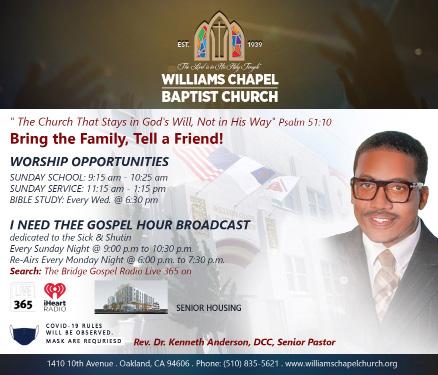

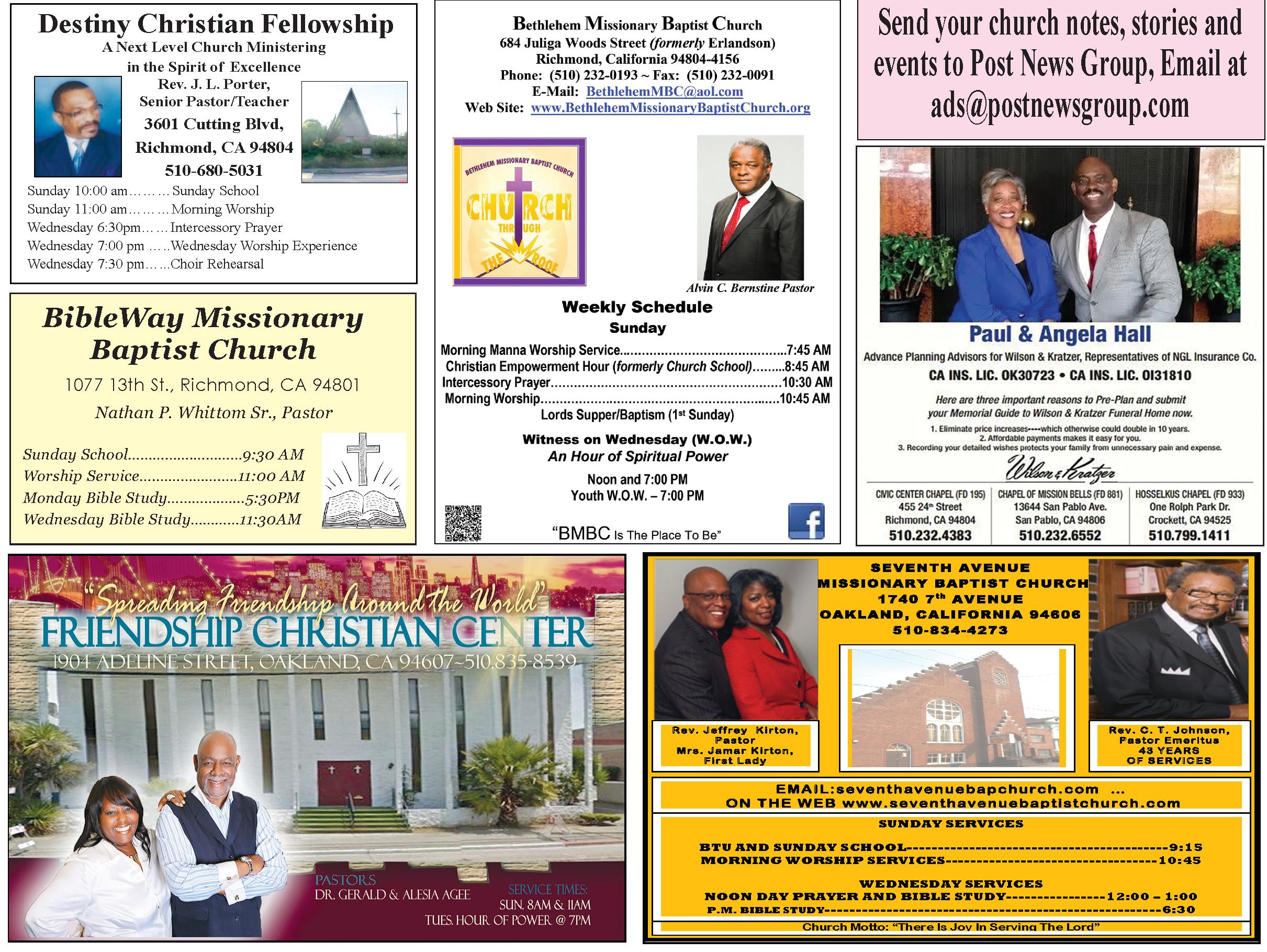


By Edward Henderson California Black Media
Last month, rapper Montero Lamar Hill — better known as Lil Nas X of ‘Old Town Road’ fame — was arrested in Los Angeles after wandering the streets in his underwear while under the influence of a substance.
Armed officers confronted Hill. As that encounter escalated, the entertainer was arrested on four felony counts, including battery on a police officer causing injury and resisting arrest.
Hill may face up to five years of prison time if convicted. His family, however, says he is fortunate to be alive.
“That was terrifying,” Hill said in a video to fans.
Other Californians experiencing mental health crises have not been as fortunate when armed officers respond. In 2016, Alfred Olango, an un-
armed man in San Diego, made national headlines after Officer Richard Gonsalves shot and killed him during a mental health episode. The incident sparked conversations on alternative measures to aid individuals in need of assistance experiencing nonviolent mental and drug-related trauma.
For the past year, the city of Los Angeles has been testing programs that dispatch specially trained unarmed civilians instead of the LAPD who don’t carry guns in response to certain calls for aid.
A report on the program released earlier this month by the city said initial results are promising.
“When deployed to nonviolent, nonurgent calls for service, unarmed crisis responders have been shown to minimize the potential for escalation and address critical mental health emergencies in a man-
Continued on page 7

Annual ‘State of the State’ Letter ...
Continued from page 4
On affordability, the Governor cited the expansion of childcare slots, paid family leave, and targeted tax credits, as well as the CalRx program designed to lower prescription drug prices. He also highlighted billions invested in affordable housing, along with policies that incentivize local governments to build new homes — and
enforce accountability when they fall short.
Newsom framed these initiatives as part of a broader strategy to strengthen the economy, expand opportunity, and maintain California’s leadership in clean technology and innovation. He closed by linking the state’s resilience to its history of pioneering ideas. “Over 175 years, we have drawn pioneers in thought and industry,” he wrote.

By Antonio Ray Harvey California Black Media
Two days after Assembly Bill (AB) 7 passed out of the State Senate with a 30-10 vote, about 150 people from across the state converged on the State Capitol, urging Gov. Gavin Newsom to sign the measure into law by Oct. 12.
Gov. Newsom has until Oct. 12 to sign or veto bills passed by the Legislature this legislative session. Any measure not vetoed by that date will automatically become law.
Authored by Assemblymember Isaac Bryan (D-Ladera Heights), the bill would allow (but not require) public and private colleges in California to offer preferential admissions to applicants who are direct descendants of enslaved people, to the extent permitted by federal law.
Following Senate concurrence, the bill was sent to the governor’s desk on Sept. 12.
A diverse group representing Black Lives Matter Grassroots, Bay Area Regional Health Inequities Initiative, the Social Justice Learning Institute, Alliance for Boys and Men of Color, University of California Student Association (UCSA), California Faculty Association, and California Association of Black Lawyers (CABL) attended the rally.
The support the bill has received through the legislative process has been “enormous,” Bryan said, pointing out that supporters who participated in the rally at the State Capitol were college-aged students who have shown the most engagement.
Malia Fraser is the Black Student Success Officer for the UCSA and chairperson of the African Student Union at UCLA. At the rally held in front of the State Capitol, Fraser said Black students make up about 4% of the UC and California State University system’s student population.
“Today we are fighting for a future where institutions finally reckon with their past and take steps toward repair,” Fraser said.
Opponents of California’s Assembly Bill (AB) 7 have argued that the bill violates Proposition 209 and that providing admissions preferences to descendants of enslaved people is unconstitutional.
However, CABL defends the legality of AB 7, pointing to the bill’s lineage focus rather than race. CABL President Tamara Michael said the approach is intended to stand up to legal challenges, particularly in light of federal rulings against race-based affirmative action.
“Let me be clear, (AB 7) isn’t about special treatment. It’s about restorative justice, creating a legal framework that allows our universities to acknowledge and repair historical wrongs,” Michael said. “AB 7 is a mechanism for justice. Not a handout.”
AB 7 is a key priority for the California Legislative Black Caucus (CLBC) and part of its “Road to Repair 2025” package — a 16-bill initiative designed to confront the lasting effects of slavery and systemic racism in the state.
Continued from page 6
ner that prioritizes compassion and safety,” the report stated.
The use of “unarmed crisis responders,” the report found, not only offers specialized care to people who need help — it also allows the “LAPD more time to focus on traditional law enforcement efforts.”
The pilot program features teams of licensed clinicians, social workers, community workers and therapists who work in pairs, responding to calls at all hours of the day and night, seven days a week. Over the first year of the program, more than 6,700 calls were responded to. Most of the calls were for welfare checks, public intoxication, and indecent exposure.
While this number of calls (roughly 40 calls per day) is only a small fraction of what the LAPD handles, the report mentions that it has saved police nearly 7,000 hours of patrol time by freeing them up for other tasks.
The two pilot programs are known as ‘The Unarmed Mod-
el of Crisis Response’, and ‘The CIRCLE program.’ They both operate out of Mayor Karen Bass’ office with their own call center and dedicated service areas.
“When crime happens, we must respond urgently and hold those accountable. But we also must, and will, continue to prevent crime before it happens,” said Bass at a press conference announcing the expansion of the programs last year.
Crisis response workers are trained in de-escalation techniques, mental health, substance use, conflict resolution and more. The teams don’t have the authority to order psychiatric holds for people in crisis, but they can work with them to find help locally, and they can spend more time on follow-up than law enforcement can.
The report also comes as the state of California has allocated $3.3 billion in grants to bring thousands of beds in supportive housing facilities online under Prop 1, or the Behavioral Health Services Act (BHSA), that voters approved last November.
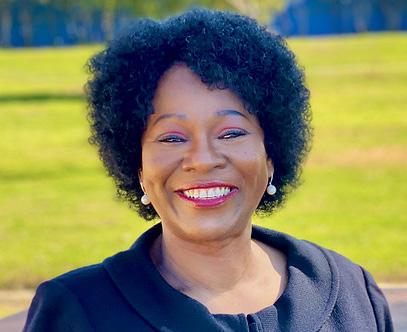
By Bo Tefu, California Black Media
The California Assembly passed AB 57 on Sept. 8, creating a 10% set-aside of home loans under the California Dream for All Program specifically for descendants of formerly enslaved people.
The bill is co-authored by Assemblymember Tina McKinnor (D-Inglewood) and a group of lawmakers comprised of California Legislative Black Caucus (CLBC) members. The authors say AB 57 aims to increase homeownership and generational wealth among historically marginalized communities.
The California Dream for All Program, administered by the California Housing Finance Agency, provides shared appreciation loans to qualified first-time homebuyers. Under AB 57, once the certification process is established by the proposed Bureau for Descendants of American Slavery, at least 10% of the program’s funds will be reserved for applicants certified as descendants of formerly enslaved people.
“I am so excited that the Assembly just passed AB 57,” McKinnor said in a video message. “We are going to close the gap, and we are going to get generational wealth for
Depot Community Apartments – OPEN WAITING LIST (STUDIO UNITS)
Located at 2595 Depot Road, Hayward CA 94545
Accepting applications from September 19, 2025, thru October 3, 2025
You can apply online at https://housingbayarea.mtc.ca.gov/
If you are unable to apply online, you can download a application via PDF on https://housingbayarea.mtc.ca.gov/ or email us at depotcommunity@jsco. net or call our leasing office at 510-477-2491 to request the application be mailed during the published period of the waiting list after September 19th, 2025. . All mailed applications must be received by 10/02/2025.
Income Restrictions apply: Accepting Applications for 50% AMI and 60% AMI Vacant Unit
John Stewart Company DRE #00654505

descendants of African American slaves.”
The legislation would become operative only if Gov. Gavin Newsom signs Senate Bill (SB) 518 into law, which would establish the Bureau for Descendants of American Slavery.
AB 57 also directs the agency to adopt policies that maximize the number of households assisted, expand opportunities for wealth accumulation, and maintain consumer protections for homebuyers.
Supporters say AB 57 represents a critical step in addressing historic inequities in homeownership.
“Listen, listen Governor Newsom, I’m asking you, sign this bill. This is going to be great for California,” McKinnor added.
Coauthors include Assemblymembers Mia Bonta (D-Alameda), Isaac Bryan (D-Ladera Heights), Sade Elhawary (D-Los Angeles), Mike Gipson (D-Carson), Corey Jackson (D-Riverside), Ash Kalra (D-San Jose), Liz Ortega (D-San Leandro), Rhodesia Ransom (DStockton), LaShae Sharp-Collins (D-San Diego), and Lori Wilson (D-Suisun City), along with Senators Akilah Weber Pierson (D-San Diego) Laura Richardson (D-Los Angeles), and Lola SmallwoodCuevas (D-Los Angeles).

By Bo Tefu California Black Media
California political leaders sharply criticized the U.S. Supreme Court’s decision to lift restrictions on federal immigration enforcement, calling the ruling “un-American” and effectively “legalizing racial profiling.”
Los Angeles Mayor Karen Bass said the decision is a direct threat to communities across the country.
“This isn’t just an attack on the people of LA, this is an attack on every person in every city in this country,” Bass said. “Today’s ruling is not only dangerous – it’s unAmerican and threatens the fabric of personal freedom in the U.S.”
The Supreme Court stay allows federal immigration officers to resume operations without prior limits in Los Angeles, potentially ending a late-summer lull in raids. Earlier this year, masked agents targeted individuals, including people who appeared Hispanic, sparking outrage.
“With the stroke of a pen, the Supreme Court has undermined the rights of millions,” Bass said, standing outside a Home Depot where federal agents previously conducted sweeps. She emphasized the city’s resistance, adding,

By Dr. John E. Warren
As California enters the redistricting battle over control of the U.S. House of Representatives, it
“I have already directed all city departments to bolster protocols and training in compliance with the city’s law prohibiting the use of resources in immigration enforcement.”
California Attorney General Rob Bonta, whose office filed an amicus brief supporting the lawsuit challenging the immigration stops, also criticized the ruling. “How they prevent the use of race to tackle discrimination but allow the use of race to potentially discriminate is disturbing, and it is troubling,” Bonta said, calling the court’s rationale “dangerous and wrong.”
The Trump administration defended the ruling as a “major victory.” Department of Homeland Security Assistant Secretary Tricia McLaughlin said law enforcement will continue to “arrest and remove the murderers, rapists, gang members and other criminal illegal aliens that Karen Bass continues to give safe harbor.”
Bass warned that renewed immigration sweeps could affect working families, tearing communities apart. She emphasized that Los Angeles would continue to uphold city laws that protect residents and urged federal authorities to respect the rights of all Californians.
is very interesting to observe the line up for and against Proposition 50, the initiative that places redistricting on the November ballot. From the moment the Governor signed the legislation, the opposition immediately started direct mail campaigns. The supporters of the measure, mainly the Democratic Party, began to gather and spend money on radio and television ads — and polling of the people in the state to see where support could be found. As usual, the Afri-
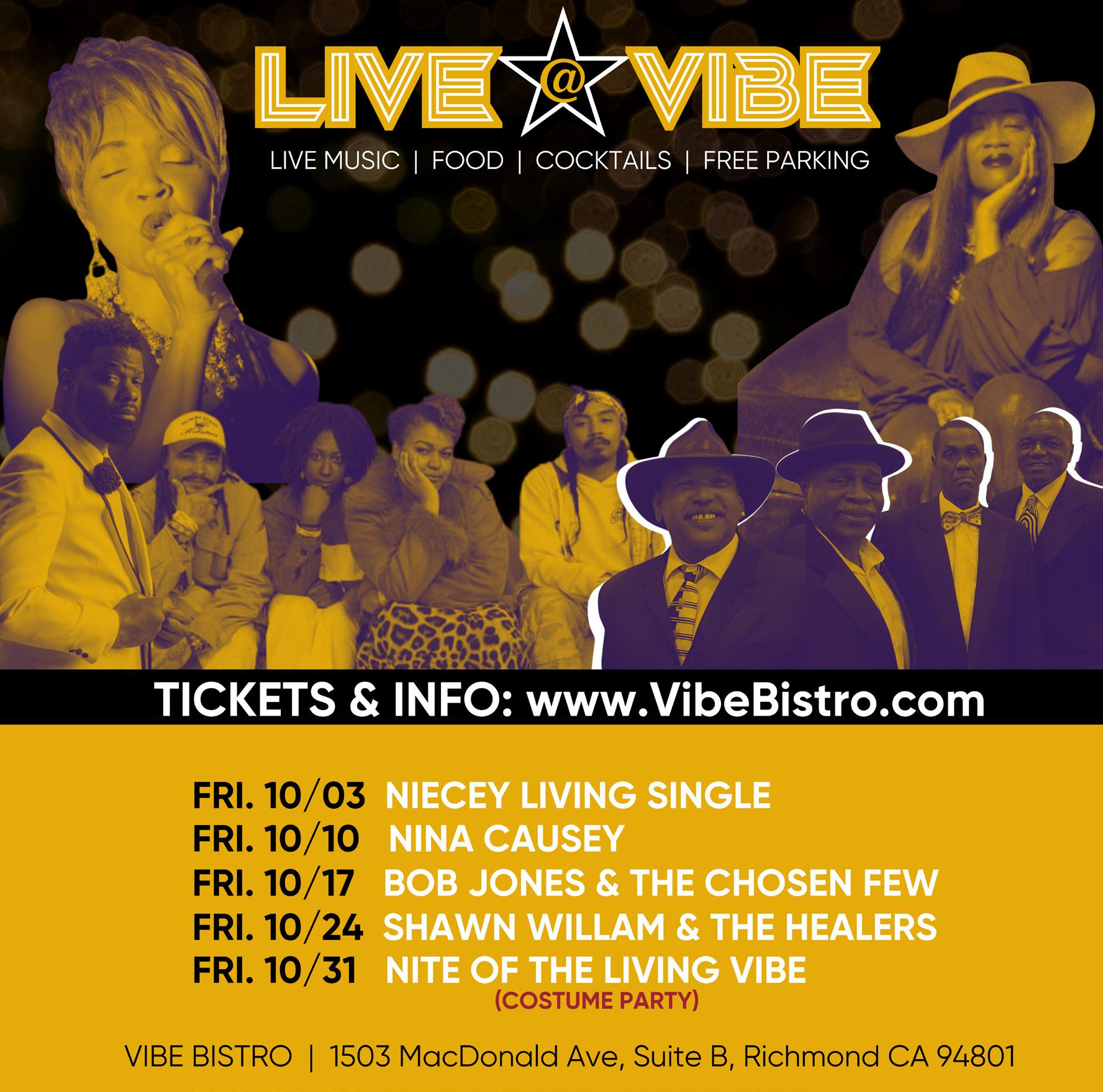
Continued from page 7
The bill intends to single out a “legacy of exclusion” in education, Bryan said. The supporters of the AB 7 took their message to Newsom’s office at
the State Capitol Swing Space Annex.
“Seeing 150 people go over to the governor’s office is powerful,” Bryan told CBM. “There have been people involved all year, all across the state, and across the country. There is no reason why (Newsom) shouldn’t sign it. I’m hopeful.”

By Bo Tefu California Black Media
Gov. Gavin Newsom announced last week that state leaders had reached a deal to extend California’s landmark cap-andtrade program, a centerpiece of the state’s climate policy that requires businesses to pay for the greenhouse gases they emit.
“After months of hard work with the Legislature, we have agreed to historic reforms that will save money on your electric bills, stabilize gas supply, and slash toxic air pollution — all while fasttracking California’s transition to a clean, green job-creating economy,” said Newsom in a statement released Sept. 10.
Assemblymember Greg Wallis (R-Bermuda Dunes) criticized the Legislature’s last-minute capand-trade deal reached last week, arguing that the process excluded public input and ignored pressing community concerns.
In a statement, Wallis argued that California lawmakers rushed through a multi-billion-dollar agreement that locks in spending priorities until 2045 without addressing refinery pollution, air quality in frontline communities, or affordability challenges.
“Good policy isn’t made in secret,” Wallis said. “Californians
deserve public input on decisions that will shape our state for decades — we are at our best when we work together, not in silos.”
Wallis faulted legislative leaders for moving the measure without hearings or opportunities for residents to weigh in. He said the deal prioritized “political projects — not working families.” A bipartisan group of legislators, he added, offered amendments to address affordability and environmental concerns, but those proposals were ignored.
The cap-and-trade system, launched in 2013, is California’s primary tool to reduce greenhouse gas emissions by requiring polluters to purchase allowances for the carbon they emit. Critics of the new deal argue it extends the program’s structure without adequately strengthening pollution safeguards in disadvantaged communities. Supporters say the agreement preserves stability in California’s climate policy and ensures continued funding for clean-energy investments.
The deal is expected to reach Newsom’s desk, where it will likely receive his signature. Newsom has championed cap-andtrade as part of California’s broader strategy to cut emissions 40% below 1990 levels by 2030.
HOV Lanes
By Bo Tefu
California Black Media
California drivers with Clean Air Vehicle decals will lose their ability to drive solo in carpool lanes starting Oct. 1, as the federal government did not extend funding for the program, officials announced.
The program, which has encouraged adoption of clean and zero-emission vehicles for more than two decades, currently benefits roughly 500,000 drivers in the state.
The decals also provided access to reduced toll rates in some areas, a perk that will end with the program. “Californians are committed to lowering their carbon footprint and these decals helped drivers be good stewards of our highways and environment,” said Steve Gordon, director of the California Department of Motor Vehicles in a statement. “By taking away this program, hundreds of thousands of California’s drivers will pay the price. It’s a lose-lose and we urge the federal government to retain this program.”
The carpool lane benefit was originally designed to incentivize electric and low-emission vehicle purchases. More than a million motorists have applied for the decal since its inception, and California is one of 13 states that of-
Continued from page 7
can American community, which largely votes democratic, has not been included in the early stages of this campaign on either side. We should take a close look at how we are being viewed in this process which will affect our future as much as anyone else in this state. Could it be that some think we might not understand the process and therefore will not vote anyway, or could it be that the opposition assumes that all or at least most Black people will vote democratic while the Democrats assume that the Black vote is in the bag and therefore, not bother to campaign for our support?
This might be a good time to remind everyone of the Supreme Court Decision in Reynolds v. Sims (1964), which requires states to use the total population of a state in drawing congressional districts rather than voting eligible populations. This doctrine ensures that each person’s vote carries the same weight and that none are more important than others. It appears that politics, polling, and dollars are deciding that not all votes are of equal importance by how campaign dollars are being spent.
There exists a Constitutional requirement of inclusion in this political process. The Black Press is still the most trusted messenger for our communities. We are
committed to the people we serve and have served for 198 years. We are a part of due process under the California State Constitution and therefore all efforts to reach our communities should and must include us.
We can read and we understand the political process, having been victims of it for more than 100 years. It should be remembered that we not only reach our communities, but we touch those we reach.
To you, our readers, you should measure, in part, the sincerity of those seeking your support by whether or not you have seen their message in our Black newspapers. How can one say they support and need our vote, but ignore our Black press while they spend all their dollars with White media?
Our communities, our voice, our votes, and our press must be as important at the beginning of every campaign as anyone else’s. You, the reader, validate us just as we validate you every week with our coverage.
Remember, every election can be won with just one vote. Will we be the ones to make the difference?
About the Author
Dr. John E. Warren is the Publisher of the San Diego Voice & Viewpoint newspaper. He is also the Chairman of the Board, National Newspaper Publishers Association (NNPA).
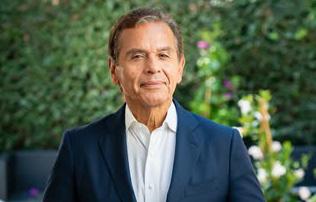
Former Los Angeles Mayor Antonio
By Bo Tefu
California Black Media
Los Angeles Mayor Karen Bass, on Sept. 9, endorsed former Los Angeles Mayor Antonio Villaraigosa for California governor, highlighting his ability to unite communities and address the state’s most pressing challenges.
fered the perk. Vehicles that qualified included fuel-cell electric, natural gas, or plug-in electric models.
Gov. Gavin Newsom blamed congressional Republicans and President Donald Trump for the program’s expiration, calling it a “traffic jam” that threatens environmental progress and commuting efficiency. “That’s Trump’s America: more traffic, more smog and a government more committed to slashing proven programs than solving real problems,” Newsom said in a statement.
Last year, Newsom signed a state bill extending the program through 2027, but federal approval is required to continue the benefits. The program ends simultaneously with the $7,500 federal tax credit for new electric vehicles, further reducing incentives for EV buyers.
California Energy Commission data shows that 25% of new cars sold in the state are zero-emission vehicles, reflecting growing consumer interest despite program cuts. Drivers may continue using carpool lanes only if they meet the multiple-occupant requirement. California law provides a 60-day grace period after the program ends before citations are issued for decal misuse.
Bass cited Villaraigosa’s experience and coalition-building skills as key reasons for her support. “That’s why I’m supporting Antonio for governor — a leader who can unite our state with our shared values and ensure that basics like high-quality schools, safe neighborhoods, affordable homes, and good-paying job opportunities are available and accessible for all Californians,” she said.
Villaraigosa, who served as mayor from 2005 to 2013 and was previously Assembly Speaker, described Bass’ endorsement as a boost to his 2026 campaign. He emphasized his focus on affordability and economic opportunity statewide. “Our children can’t buy a home without our help. I’m focused on affordability,” Villaraigosa said in an interview on Sept. 9.
The two leaders share a long political history, with Villaraigosa having endorsed Bass in her successful 2022 mayoral campaign. Bass’ endorsement signals strong support from Los Angeles’ political class and could give Villaraigosa early momentum as the gubernatorial race heats up.
Several other Democrats are running for governor in 2026, in-

By Antonio Ray Harvey California Black Media
Assembly Bill (AB) 62, authored by Assemblymember Tina McKinnor (Inglewood), passed in the Assembly with a 66-4 vote on Sept. 9. It now advances to Gov. Gavin Newsom’s desk for a signature or veto by Oct. 12.
The measure — part of the California Legislative Black Caucus (CLBC) multi-year “Road to Repair” legislative package — is a reparations bill aimed at providing restitution for victims of racially motivated eminent domain and their descendants.
“I feel so hopeful that the governor will sign it,” McKinnor told California Black Media (CBM) on Sept. 11 at the State Capitol. “Actually, it will help the descendants of chattel slavery at the top, but it helps every Californian whose home or property was taken through eminent domain.” McKinnor’s bill defines “racially motivated eminent domain” as the acquisition of private property by a state or local government for public use without just compensation, motivated by the owner’s race or ethnicity.
cluding former California Assembly Speaker and Senate Pro Tem Toni Atkins; former United States Secretary of Health and Human Services and former California Attorney Gen. Xavier Becerra; former U.S. Rep. Katie Porter; California State Superintendent of Public Instruction Tony Thurmond; and former California State Controller Betty Yee. Republicans Steve Hilton, a businessman and TV Show host, and Riverside County Sheriff Chad Bianco are also in the race.
Lt. Gov. Eleni Kounalakis has dropped out to run for state treasurer.
According to AB 62’s language, the California Civil Rights Department, upon appropriation by the Legislature, will be directed to review, investigate, and make certain determinations regarding applications from persons who claim they are the dispossessed owners.
Republican Assemblymembers Carl DeMaio, Stan Ellis, Alexandra Macedo, and Heather Hardwick voted no on AB 62.
A day before its final Assembly floor vote, the bill passed 30-7 in the Senate.
AB 62 builds on the momentum of California’s decision to return Bruce’s Beach in Los Angeles County to its original owners.
“People must understand, most of the time when homes were tak-
NOTICE AND DIGEST
en by eminent domain, it was the poor people’s homes – Black and Brown,” McKinnor said.
In February, the CLBC introduced its multi-year Road to Repair legislative package based on recommendations included in the state’s 2023 reparations task force report. Several other reparative justice bills by CLBC members are on their way to Newsom’s desk, including the following.
On Sept. 11, AB 766, legislation authored by Assemblymember LaShae Sharp-Collins (D-San Diego), passed out of the Assembly with a 48-14 vote. It mandates state agencies to perform a “racial equity analysis” on new regulations and budget requests.
AB 742, authored by Assemblymember Sade Elhawary (DLos Angeles), passed 59-16 out of the Assembly on Sept. 10. It requires state licensing boards to expedite applications for individuals who are certified as descendants of American slaves.
Last week, the Senate concurred with Assembly amendments to Senate Bill (SB) 437, authored by chair of the CLBC Sen. Akilah Weber Pierson (D-San Diego), with a 29-10 vote.
The bill’s purpose is to direct the California State University (CSU) to research and develop methods for verifying an individual’s status as a descendant of a person who was enslaved in the United States. SB 437 would authorize the use of up to $6 million to enable the CSU to conduct the research.
Weber Pierson’s SB 518 also advances to the governor’s desk after receiving a 30-10 vote in the Senate on Sept. 10. The bill establishes the Bureau for Descendants of American Slavery within the California Department of Justice. SB 437 and SB 518 are “one step closer to the Governor’s desk and to becoming California law,” Weber Pierson stated.
AN EMERGENCY ORDINANCE (1) REPEALING THE OAKLAND AMENDMENTS TO THE 2022 EDITION OF THE CALIFORNIA MODEL BUILDING CONSTRUCTION CODES, (2) ADOPTNG LOCAL AMENDIMENTS TO THE 2025 EDITION OF THE CALIFORNIA MODEL BUILDING CONSTRUCTION CODES, (3) AMENDING OAKLAND MUNICIPAL CODE (“O.M.C.”) CHAPTER 15.04 TO COMPLY WITH CHANGES TO STATE LAW, AND (4) ADOPTNG CALIFORNIA ENVIRONMENTAL QUALITY ACT EXEMPTION FINDINGS
This Ordinance serves to repeal the Oakland Amendments to the 2022 Edition of the California Building Standards Code, while also adopting local amendments the 2025 Edition of the California Building Standards Code, and amending Oakland Municipal Code Chapter 15.04 to comply with changes in State law. The Council also found that the above actions are exempt from the California Environmental Quality Act (“CEQA”). Notice of Publication
This Emergency Ordinance was introduced and adopted at the Special City Council meeting, Monday morning, September 15, 2025, and passed to print 8 Ayes. Final adoption occurred at the Special City Council meeting Monday morning September 15, 2025, at One Frank H. Ogawa Plaza, Council Chamber, 3rd floor, Oakland, California and via Teleconference.
Three full copies are available for use and examination by the public in the Office of the City Clerk at One Frank H. Ogawa Plaza, 1st floor, Oakland, California.
ASHA REED, City Clerk
Publication Date: Friday, September 19, 2025

Emergency planning begins at home, but it doesn’t stop there. It’s just as important to consider the needs of your extended family, neighbors, and anyone who may rely on you in a crisis. When creating an emergency plan, talk with your loved ones about these key steps:
Stock up on essentials like food, water, batteries, flashlights and a batterypowered radio.
Make sure everyone knows how to manually open the garage door if the electricity goes out. Consider backup power options like a generator or portable chargers.
Map out safe exits from your home and neighborhood in case you need to evacuate quickly.
To learn more ways to prepare for an emergency, visit safetyactioncenter.pge.com.
40 x 40 Council
Continued from page 1
ly-centered activities, and workshops offered a reminder of what can happen when neighbors organize to uplift one another.
The atmosphere carried a spirit of togetherness, with families enjoying free food, children playing in dedicated activity spaces, and residents pausing at information tables to learn about services and programs tailored to East Oakland’s needs. A DJ spun popular music and much of the staff on hand dressed in western wear as an ode to Black cowboy history.
Informative workshops, yoga sessions and other activities sparked conversations about health, stability, and the future of local families, while giveaways promoted health and wellness.
The 40x40 Council – comprised of the Black Cultural Zone, Brotherhood of Elders Network, East Oakland Youth Development Center (EOYDC), and Roots Community Health — has worked with purpose to reverse decades of disinvestment.
By centering culture, history, and healing, the Council leaders say their organizations are re-
imagining East Oakland as a place where residents can remain rooted, grow stronger, and see their futures reflected in the neighborhoods they helped to build.
“We’re so excited to be here today,” said Jasmine Sowell of Roots Community Health.
“This is what community is all about.”
Community advocate Jesse Brook said he recently began working with the organization.
“The organization’s reach is amazing,” he said.
Representatives of the Brotherhood of Elders Network organization engaged attendees on how the power of convening with other men multi generationally creates a powerful force in the community and provides support for individuals.
Vendors on hand sold jewelry, natural oils, journals, and gifts.
Attendees agreed that Neighborhood Empowerment Day reaffirmed that East Oakland’s strength lies in its people, its traditions, and its commitment to ensuring Black residents continue to thrive.
East Oakland’s Collins Drive Renamed ...
Continued from page 1
dustrial construction and construction management. Fully licensed and bonded, TGC has led over 300 projects across sectors—from hospitals and medical offices to K-12 schools, city ports, and transportation railways.
But their work is about more than buildings. TGC has always believed in building up people.
“We’ve trained thousands, helped dozens earn their contractor’s license, and supported hundreds more in growing their businesses. That legacy continues today through the Construction Resource Center (CRC),” Len Turner said.
Established formally in 2014 by Turner Group Construction, CRC was born out of a clear industry need: a shortage of skilled contractors and tradespeople—particularly from marginalized communities. TGC recognized that the shortage would only widen without action. “So, we built a solution—an evidence-based training program that delivers both online and onsite, focused on best practices, standard operating procedures, and the business acumen needed for lasting success,” Turner said.
According to Skills for America’s Future, underrepresented communities face higher unemployment and less access to quality jobs, leading to poverty and limited economic mobility. “CRC exists to counteract that, and we’re proud to say—we’ve made a measurable difference.
“We love Oakland. This city has always given to us—and we’ve always given back. That’s how we were raised. That’s what we do. That’s who we are. And naming a street after our work is a reminder of our commitment—not just to concrete and steel, but to community.
This family continues to provide pathways for success.
1. Ultimate Construction Guide Series (4 Volumes) Soon to be Released on Amazon
The Ultimate Construction Guide Series is designed to be the best trusted business partner in the construction industry. Available in both paper and digital formats, these four comprehensive guides address some of the most critical challenges facing contractors— such as lack of capital, poor systems, and inadequate communication between the office and field.
Each guide offers step-by-step instructions on key business practices, from launching a construction company to implementing standard operating procedures. The content is designed to comple-
Continued from page 1
her passion for music continued to grow as she lent her voice at gatherings, clubs, funerals, and community events…touching lives wherever she sang.
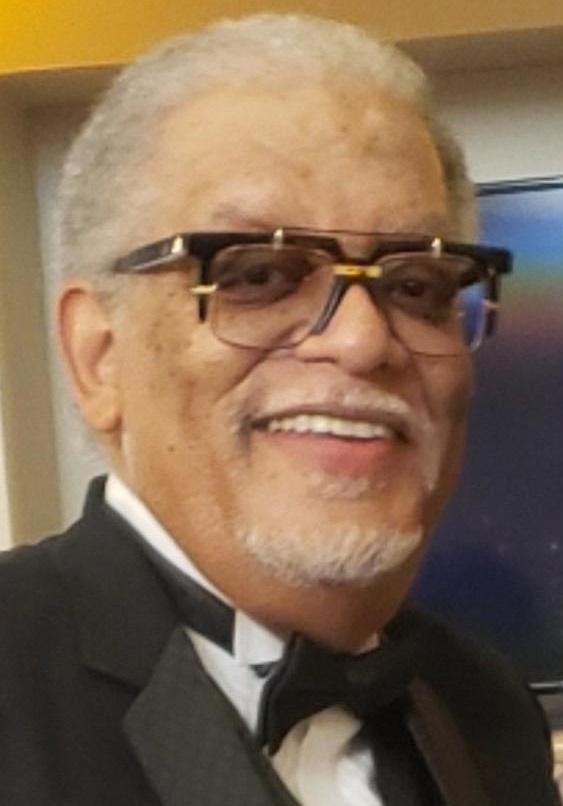
Beyond music, Lee is a gifted professional painter, a dedicated janitor, and a proud sister, daughter, and aunt. Above all else, she says she is a proud child of God.
“Artemis embodies strength and faith as a woman in charge, using every platform she’s given to inspire others with both her artistry and her testimony,” says Cole.
BIGBA’s panel of judges included Dr. Adam (Adamology) Rogers, Lawrence Matthews, Kevan Peabody, Rusty Watson and April Wright.
Cole announced that the Best In Gospel - Bay Area Contest Registration for 2026 is now open. Applicants should send their name, address and phone number to: bigbayarea220@yahoo.com
Oakland Private Industry Council Hosts Gala ...
Continued from page 1
sic and dancing.
PIC continues to strengthen the economic well-being of residents across Alameda and Contra Costa Counties through workforce development.
alongside looming reductions to Medi-Cal and Medicare, PIC has identified significant new needs among seniors, low-income individuals, and those re-entering society from incarceration.
Community and Clergy Unite in Oakland ...
Continued from page 1
our community? It is not acceptable, and we are here today to say enough is enough,” said Pastor Zachary Carey, founder of SAVE and leader of True Vine Ministries. “If we make a voice with more than one church, more than one non-profit, we can make noise at City Hall and Sacramento to stop the violence, which is not normal.”
The gathering also included leaders from ION, a nonprofit that co-sponsored the rally. A central moment of the event was the reading of the names of every homicide victim in Oakland in 2025, followed by prayers for their families.
Brigitte Cook, president of SAVE, emphasized the importance of community support for grieving families. “Immediate and extended families are mourning their mothers, fathers, brothers, sisters, and cousins,” she said. “As the Oakland village, we need to em-
ment CRC’s classes and workshops, creating a well-rounded, practical curriculum.
By following the guidance provided, contractors can protect their businesses, improve operational efficiency, and ultimately save time and money and grow a successful business.
2. 10-Week Project Management Business Course and More
Offered twice a year, this 10week course covers all major phases of a construction project—from initiation to closeout. Classes are led by multiple industry experts and provides hands-on training in essential areas such as:
Risk Assessment & Mitigation (Back-Office Set-up)
• Estimating and Scheduling (Learn How to Control the Heart of your Business)
• Calculating Overhead & Profit (OH&P)
Labor Rate Analysis
• Jobsite Safety
• Construction Industry Software Effective Communication & Networking
The interactive curriculum includes weekly assignments designed to apply project management principles in real-world contexts. Coursework is available in both English and Spanish, ensuring broader accessibility. Participants gain practical skills to strengthen their business operations, enhance project efficiency, and increase earning potential.
3. E-Learning Web-Based Modules (Assessments Included)
(Available in English & Spanish)
The e-learning modules provide a flexible and accessible way to deliver trade-specific training— perfect for staff meetings, at-home study, or on-the-job learning. Each module offers clear, detailed explanations of essential processes that directly impact daily operations and your bottom line.
Designed for self-paced learning, the modules feature visual instruction paired with practical, real-world applications. Each lesson concludes with a brief assessment to ensure understanding of the core concepts—specifically how each process can help increase profitability or reduce business costs. These modules empower workers and business owners alike to make smarter, more cost-effective decisions on the job.
For more information, please see the website at www.constructionresourcecenter.org.
Originally founded as the Oakland Private Sector Corporation in 1974, it was led for over 30 years by CEO Gay Plair Cobb. PIC has long been recognized as a forward-thinking local institution, focused on employment, education, career development, and re-entry services for the formerly incarcerated, while also expanding into health care advocacy. Executive Director Raymond Lankford, a lifelong Oakland resident with a master’s degree in social services, brings both professional training and personal insight to the needs of the community.
With the support of a highly skilled board of directors representing fields from housing and workforce development to health care, PIC continues to anticipate and meet the changing needs of the region.
“True health includes spiritual, psychological, physical, and socioeconomic well-being,” Lankford explains. “That’s what we are working to build into our community services.”
As diversity, equity, and inclusion programs face cutbacks
The organization has launched training for local “health advocates” while maintaining its longstanding commitment to women’s career advancement, workforce preparation, re-entry programs, and employer partnerships.
The October gala will raise essential funds to expand these innovative services, ensuring that PIC remains a cornerstone for East Bay residents navigating social and economic challenges.
For more than four decades, PIC has played a vital role in strengthening Oakland and the surrounding communities. Its work in reducing crime, revitalizing neighborhoods, supporting small businesses, and improving outcomes for persons navigating re-entry after incarceration has been nationally recognized.
By focusing on wraparound services, the organization has elevated the economic, psychological, and physical well-being of thousands of lives.
For gala tickets visit: www. zeffy.com/en
Christian Layman Church Garage Sale ...
Continued from page 1
workplace—things someone else would love to buy. Deliver the donations on Sunday, Sept. 28 and Oct. 5 to Christian Layman Church,
The goal is to raise funds and clear out useful items—not to collect things that won’t sell. To keep the sale appealing and manageable, here are some donation guidelines to consider when donating items.
Donate items that are clean and in good condition, useful or desirable (e.g., small furniture, kitchenware, tools, toys, books, electronics, decor), seasonally appropriate (e.g., Halloween, Fall, holiday items), and easy to transport and display.
Preferred items include:
• Clothing that is clean and in good condition: such as jackets, sweaters, slacks, dresses, denim, bags, purses, or backpacks. If it’s stained, dirty, worn out, torn, smelly – don’t bring it – it won’t sell!
• New shoes only.
• Gently used household items – cookware, dishes, utensils, small kitchen appliances that still work.
• Home décor – picture frames, vases, lamps, rugs, mirrors, new candles.
• Small furniture – small, easyto-carry pieces like side tables, chairs, and shelves.
• Kids’ items – high quality toys, clothing, books.
• Tools and garden equipment
– hand tools, power tools (in working order), planters, garden décor.
• Books, DVDs, board games –especially popular titles, classics, and family-friendly picks.
• Seasonal/holiday décor – Halloween, Christmas, etc.
• Sports and outdoor gear – bikes, camping gear, fishing equipment, exercise equipment.
The church cannot accept items that are broken, damaged, stained, or needing repair, outdated or broken electronics or appliances, used bedding, bed pillows, or towels, personal care items that have been opened or used, used undergarments, socks, or anything stained, ripped, or missing buttons, car seats or cribs (due to safety regulations), and any large furniture items unless you are willing to haul it back if it does not sell.
Take a close look at everything you are planning to donate and consider whether you or anyone you know would be willing to buy it. If not, they can’t use it!
If you want to help organize or volunteer at the garage sale on the day of, contact Gordon Wang at wanggc@gmail.com or call the church’ office at (510) 526-5855. The church will love your help!
brace the families of community violence just as we do for those lost to institutional violence.”
Since 2011, SAVE has organized dozens of such stand-ins at locations across the city, aiming to both honor victims and mobilize neighbors against ongoing bloodshed. Organizers said the rallies are designed not only as vigils but also as calls to action, urging Oakland residents to speak out and hold leaders accountable.
The next “Peace Stand-In” is scheduled for Nov. 8, at 11 a.m. on the corner of Havenscourt and International Boulevard. SAVE describes its mission as raising awareness about violence, promoting peace in the streets, fostering civic engagement, and pushing for policy changes to curb gun violence. Working with churches, nonprofits, and concerned citizens, the group has built a network dedicated to advocacy and healing.
Kenneth J.L. Anderson Marks Milestone ...
Continued from page 1
derson, whose presence embodies quiet strength and profound influence. “I am blessed to partner in life and ministry with the beautiful Lady Ellesse Anderson,” Anderson said.
“Lady Anderson faithfully pours into the children of the church and community, builds our women’s ministries, and stands boldly on the frontlines of our community outreach. Her wisdom, kindness, and strength— while quiet in nature—speak loud in service as the fragrance of our home and ministry.”
The celebration will take place Sunday, Sept. 28, at 3 p.m. at Wil-
liams Chapel, 1410 10th Ave. in Oakland. Guests from across the region are expected to fill the sanctuary to honor a pastor who has become both shepherd and civic leader.
From the pulpit to the radio waves—where his broadcast, “The I Need Thee Gospel Hour,” airs weekly on KBRG — The Bridge Gospel Radio — Anderson’s influence continues to expand. And as the Bay Area wrestles with issues of homelessness, inequity, and generational change, Williams Chapel stands as a living testament to the power of faith in action.

By Carla Thomas
The closure of the Berkeley Flea Market, a longtime hub for cultural exchange and independent vendors, placed businesses like Sankofa African Art on unstable ground.
For decades, the market, located in the parking lot of the Ashby BART station has been a gathering place for Black and immigrant entrepreneurs, artists, and craftspeople who might otherwise struggle to find affordable retail space in the Bay Area’s increasingly gentrified landscape.
When the historic marketplace officially shuttered in June, vendors like Ellen Agyeman Manu-Bimpeh, aka “Mama Ellen,” owner of Sankofa African Art, faced the loss of foot traffic, diminished economic security, and the disintegration of a community gathering space. The struggle was not just about one store, but the survival of spaces that allow African and diaspora traditions to thrive in Oakland and the greater Bay Area.
“This marketplace is unique in that it primarily features Black and African vendors,” said Manu- Bimpeh. “The flea market near Laney College is primarily a Latino community.”
Despite the uncertainty, a small group of 15 people determined to continue the Berkeley Flea Market, along with other vendors and business owners, continued to vend while Their group, along with volunteers and community leaders, formed Community Services United (CSU), and have now secured a two-year lease. “We tried for a 10-year lease, but BART only agreed to the two-year lease,” said CSU President and CEO Artrenia
Harris. Harris is also the owner of Selective Treasures, showcasing her paintings and handcrafted jewelry. She also sells Cajun dishes via her T’s Soulful Cuisines company.
Harris shared that the Berkeley Flea Market, now open every Saturday and Sunday, will operate under a more sustainable model with a store featuring donated items for sale that will be reinvested back into the market. The market will also include dedicated zones for children with a bounce house, cafe, and crafting activities.
“The crafting activities will be designed to teach youth how to create and learn entrepreneurial skills,” said Harris. “A canopy-enclosed lounge area for seniors will also be created for elders to sit, enjoy the day, and eat.” Harris says volunteers will engage the seniors and assist them with walking the market, acquiring meals, and playing games like chess and checkers.
As the almost displaced marketplace moves forward, the spirit of unity in the community is what saved the space. And the new 10-person executive board and seven-member advisory board of the CSU plan to lead the market into its redesigned space. The market at 1937 Ashby Ave. will operate from 9 a.m.-5 p.m. on Saturdays and Sundays.
The Berkeley Flea Market was founded in the 1970s to foster community and provide opportunities for marginalized groups to engage in business Berkeley. The market became a cultural landmark that celebrated 50 years but had struggled financially after the COVID-19 pandemic of 2020.